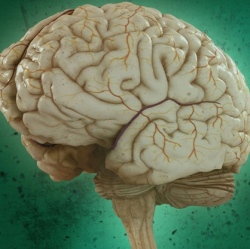
A strategy designed to improve memory by delivering brain stimulation through implanted electrodes is undergoing trials in humans. The US military, which is funding the research, hopes that the approach might help many of the thousands of soldiers who have developed deficits to their long-term memory as a result of head trauma.
At the Society for Neuroscience meeting in Chicago, two teams funded by the Defense Advanced Research Projects Agency presented evidence that such implanted devices can improve a person’s ability to retain memories.
By mimicking the electrical patterns that create and store memories, the researchers found that gaps caused by brain injury can be bridged. The findings raise hopes that a ‘neuroprosthetic’ that automatically enhances flagging memory could aid not only brain-injured soldiers, but also people who have had strokes, or even those who have lost some power of recall through ageing.
Because of the risks associated with surgically placing devices in the brain, both groups are studying people with epilepsy who already have implanted electrodes. The researchers can use these electrodes both to record brain activity and to stimulate specific groups of neurons.
Although the ultimate goal is to treat traumatic brain injury, these people might benefit as well, says biological engineer Theodore Berger at the University of Southern California (USC) in Los Angeles. That is because repeated seizures can destroy the brain tissue needed for long-term-memory formation.
Short-term memories are thought to be created when a part of the brain called the hippocampus aggregates sensory information, as well as the perception of space and time, and holds it readily accessible for a short while. Accessing the memory during that time will solidify it into a long-term memory.
